Industrial Valves in UAE
(20 products available)Industrial valves play a vital role in controlling the flow of liquids, gases, and slurries within various industrial processes. These mechanical devices are designed to regulate, start, stop, or divert the flow of fluids, ensuring efficient operation of pipelines, tanks, and machinery. From simple on-off valves to complex control valves, the industrial valve market offers a wide range of solutions tailored to specific application needs. Industrial valves in UAE find applications across diverse industries including oil and gas, water treatment, chemical processing, power generation, and manufacturing. Understanding the types, functions, and applications of industrial valves is essential for optimizing processes, enhancing safety, and maintaining productivity in industrial settings. Discover Industrial Valves Suppliers & Manufacturers in UAE on TradersFind. On this platform you can connect with the best suppliers and manufacturers offering best quality as per your needs
Industrial valves play a vital role in controlling the flow of liquids, gases, and slurries within various industrial processes. These mechanical devices are designed to regulate, start, stop, or divert the flow of fluids, ensuring efficient operation of pipelines, tanks, and machinery. From simple on-off valves to complex control valves, the industrial valve market offers a wide range of solutions tailored to specific application needs. Industrial valves in UAE find applications across diverse industries including oil and gas, water treatment, chemical processing, power generation, and manufacturing. Understanding the types, functions, and applications of industrial valves is essential for optimizing processes, enhancing safety, and maintaining productivity in industrial settings.
Discover Industrial Valves Suppliers & Manufacturers in UAE on TradersFind. On this platform you can connect with the best suppliers and manufacturers offering best quality as per your needs
Industrial valves play a vital role in controlling the flow of liquids, gases, and slurries within various industrial processes. These mechanical devices are designed to regulate, start, stop, or divert the flow of fluids, ensuring efficient operation of pipelines, tanks, and machinery. From simple on-off valves to complex control valves, the industrial valve market offers a wide range of solutions tailored to specific application needs. Industrial valves in UAE find applications across diverse industries including oil and gas, water treatment, chemical processing, power generation, and manufacturing. Understanding the types, functions, and applications of industrial valves is essential for optimizing processes, enhancing safety, and maintaining productivity in industrial settings.
Discover Industrial Valves Suppliers & Manufacturers in UAE on TradersFind. On this platform you can connect with the best suppliers and manufacturers offering best quality as per your needs
View less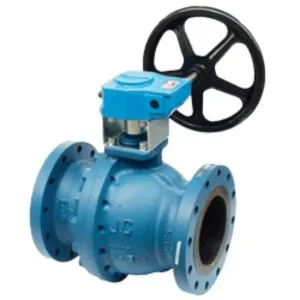
- Usage/Application : Petrochemical, Oil And Gas Industries
- Bore Type : Full Bore
View more...
JC Valvulas FZC
Other Categories
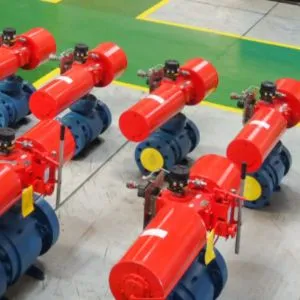
- Valve Type : Actuated
- Material : Stainless Steel
View more...
Valve Technical Services FZC
Other Categories
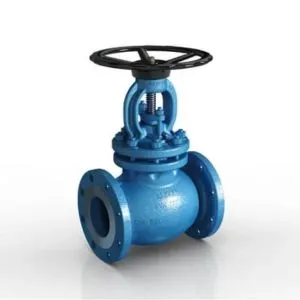
- Application : Water
- Pressure Type : High Pressure
View more...
Al Asas Valves Trading LLC
Other Categories
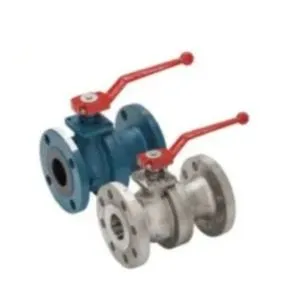
- Bore Used : Full, Reduced Bore
- End : Flanged, Threaded
View more...
JC Valvulas FZC
Other Categories
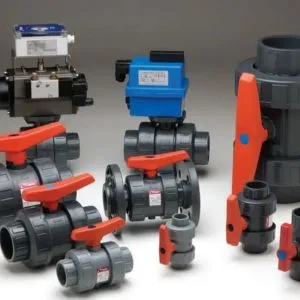
- Valve Types : Spring Check Valve, Tee, Reducer Bush, Wafer Check Valve, Ball Valves with Electric Actuation
- Available Sizes : 20mm to 315mm
View more...
PVS General Trading LLC
Other Categories
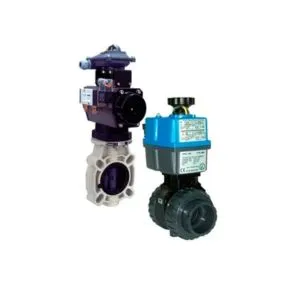
- Usage/Application : Industrial, Swimming Pool, and Irrigation Systems
- Standards : UNE-EN 1452-3, DIN 8063
View more...
PVS General Trading LLC
Other Categories
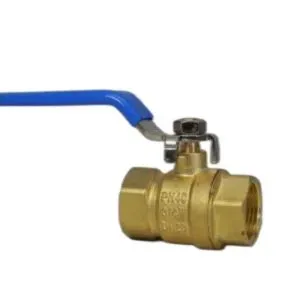
- Material : Brass
- Usage/Application : Water
View more...
Gulf Trading Innovation LLC
Other Categories
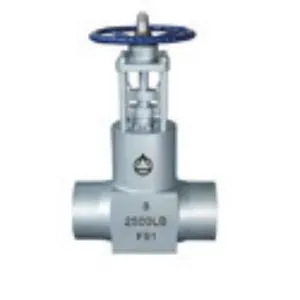
- Valve Type : Hydrant Valve
- Automation Grade : Manual
View more...
Mohsin Trading Co LLC
Other Categories
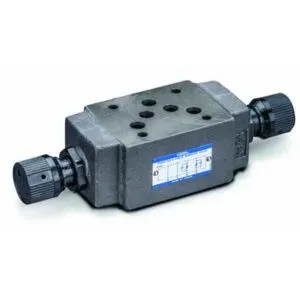
- Material : Mild Steel
- Power : Hydraulic
View more...
Hydrofit Trading LLC
Other Categories
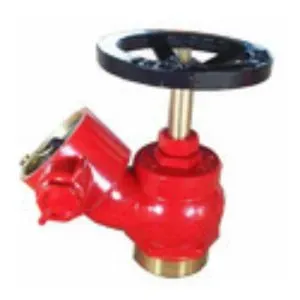
- Pressure : Medium Pressure
- Material : Stainless Steel
View more...
Valtorrque Valves Trading LLC
An easy way to post your sourcing requests and get quotes.
- One request, multiple quotes
- Verified suppliers matching
- Quotes comparison and sample request
What Are Industrial Valves?
Industrial valves are mechanical devices used to control the flow of liquids, gases, and slurries in industrial processes. They regulate, start, stop, or redirect fluid flow in pipelines and machinery. These valves come in various types, such as on-off valves and control valves, and play a crucial role in industries like oil and gas, water treatment, and manufacturing, ensuring efficient operation and safety in fluid-handling systems.
Importance Of Industrial Valves in Various Industries
- • Control Flow: Industrial valves & valve fittings regulate the flow of liquids or gases within pipelines, ensuring precise control. This is crucial for maintaining optimal conditions in processes such as manufacturing, energy production, and water treatment.
- • Safety Measures: Valves play a vital role in preventing accidents by offering a means to shut off or control the flow in emergency situations. This enhances workplace safety across diverse industries.
- • Process Efficiency: By allowing operators to adjust flow rates and pressures, valves optimize operational efficiency. This is particularly significant in industries like oil and gas, where precise control impacts overall production effectiveness and resource utilization.
- • Versatility: It comes in various types, each tailored to specific needs. Whether it's ball valves for quick shut-offs or globe valves for fine-tuned adjustments, their versatility makes them adaptable to a range of industrial applications.
- • Fluid Isolation: Valves isolate different sections of a pipeline, enabling maintenance or repairs without disrupting the entire system. This is essential for minimizing downtime and ensuring the continuous operation of various industrial processes.
- • Environmental Compliance: Valves contribute to environmental responsibility by aiding in the containment and control of potentially hazardous substances. This is critical for adhering to regulatory standards and minimizing the impact of industrial activities on the environment.
Types Of Industrial Valves
Gate Valve:
The most widely used valves in use today are those that fully retract into the bonnet while the valve is in the open position, minimizing pressure drop and allowing for continuous flow when needed. Typically, isolation applications are where gate valves are used.
Globe Valve:
The primary benefit is that a globe valve opens more quickly than a globe valve since complete flow is permitted with only a small amount of disc movement from its seat. When a valve is operated frequently, it is advantageous. The fluid must alter its path, which increases flow resistance and causes turbulence. This is the drawback. A globe valves experiences a greater pressure drop than a gate valve. Globe valves can be used to open, close, or restrict pipeline flow.
Butterfly Valve:
Butterfly valves are easily handled by rotating a handle 90 degrees. Large butterfly valves have a gearbox attached, which uses gears to link the handwheel butterfly valves to the stem. This makes the valve's operation simpler while reducing speed.
It consists of a metal disc within the valve body that is positioned perpendicular to the flow when the valve is closed. With intermediate rotations, the liquid flow can be controlled. Butterfly valves can be configured for electrical, manual, or pneumatic operation.
Diaphragm Valve:
Diaphragm valves are valves for industrial valves for oil and gas control flow by using a flexible diaphragm to isolate the flow path. When the diaphragm is pressed against or pulled away from the valve seat, it either permits or restricts the flow of liquids or gases. This design prevents contamination and makes it suitable for handling corrosive fluids in oil and gas processes.
Pressure Relief Valve:
A pressure relief valve safeguards equipment by automatically releasing excess pressure in a system. When pressure exceeds a predefined limit, the valve opens to discharge fluid, preventing damage and ensuring safety in oil and gas applications.
Piston Valve:
Operating like a piston in a cylinder, this valve regulates fluid flow by moving a piston within the valve body. Commonly used in high-pressure environments in the oil and gas industry, the piston valve is durable and reliable for controlling the flow of gases or liquids.
Solids Valve:
Solids valves are designed to handle materials in solid form, like powders or granules. These valves ensure precise control over the flow of solid substances in oil and gas processes, preventing clogs and ensuring efficient handling of materials.
Three-way Valve:
A three-way valve directs fluid flow between three different paths. This versatility allows it to control the mixing or diversion of fluids in oil and gas systems. It's often used for applications where the direction of flow needs to be changed or where blending of different fluids is required.
Dual Plate Check Valve:
Acting as a one-way valve, the dual plate check valve permits fluid flow in one direction while preventing backflow. Its compact design and efficiency make it suitable for oil and gas pipelines, preventing the reversal of fluid flow and protecting equipment from damage.
Knife Gate Valve:
Ideal for handling viscous fluids or slurries, the knife gate valve uses a sharp-edged gate to cut through and control the flow of materials. Commonly employed in challenging oil and gas environments, this valve effectively handles substances with high viscosity and solid content.
Applications Across Industries
Oil and Gas:
- • Upstream Applications: In finding and extracting oil, valves control drilling equipment and manage fluid flow during exploration, ensuring efficient and safe operations.
- • Midstream Applications: Valves regulate the flow of oil and gas through pipelines, facilitating transportation from extraction sites to refineries or storage areas.
- • Downstream Applications: In refineries, valves control processes like refining and distribution, managing the flow of refined products for production and delivery.
Chemical and Petrochemical:
- • Role in Processing Plants: Valves control chemical processes, regulating the flow of liquids and gases in chemical plants. They play a crucial role in maintaining precise conditions for production.
- • Types Preferred in Chemical Industries: Corrosion-resistant valves, like those made of stainless steel, are favored in chemical industries due to their durability and ability to handle harsh chemical environments.
Power Generation:
- • Steam Control Valves: Essential for power plants, these valves regulate steam flow to control temperature and pressure, ensuring efficient energy production in steam-based power generation systems.
- • Cooling System Valves: Best quality industrial valves manage the flow of cooling fluids, maintaining optimal temperatures in power generation systems. They contribute to efficient heat dissipation, crucial for the overall performance of power plants.
Industrial Valve Installation: Best Practices for Optimal Performance
The proper installation of industrial valves is necessary to get maximum performance from them. It's crucial to adhere to these best practices to guarantee seamless functioning and long-lasting operation:
Observe the manufacturer's instructions
For installation instructions unique to the type and model of valve you are installing, always consult the manufacturer's specifications. These instructions offer useful details on appropriate installation methods and things to keep in mind.
Accurately Position Piping
Proper piping system alignment is necessary for valve installation to be successful. Reduced performance, leakage, and stress can all result from misalignment. To ensure a good fit and prevent undue strain on the valve, take your time aligning the pipes.
Choose Gaskets and Bolts Correctly
To install a valve securely and without leaks, the right gaskets and bolts must be chosen. Select bolts and gaskets based on compatibility with the valve and fluid being handled. To keep a trustworthy seal, make sure the right amount of torque is used during installation.
Examine the valve
Make sure the valve is functioning and intact by thoroughly testing it before putting the system into action. Pressure testing, leak inspections, and other pertinent evaluations might be used to confirm correct installation and operation.
Valve Orientation Correctly
During installation, be sure the valve is oriented correctly. The functioning and performance of the valve may be jeopardized by improper orientation. To guarantee that the valve is positioned correctly for the best possible flow control, according to the manufacturer's instructions.
You can optimize the lifespan and performance of industrial valves during installation by following these recommended practices, which will improve the overall dependability and efficiency of your system.
Valve Maintenance
Perform Continual Examinations
Make sure your valves are regularly inspected for wear, corrosion, or damage. This enables prompt repairs or replacements and aids in the early detection of possible problems.
Replace any worn-out or damaged parts
It's critical to replace any worn-out or damaged valve components as soon as you discover them during inspections. Failure to replace damaged parts may result in additional harm or system failure.
Clean and lubricate
Make sure your valves are clean and well-lubricated. To find the proper cleaning techniques and lubrication intervals, refer to the manufacturer's instructions. This guarantees smooth valve action, lessens wear and tear, and helps prevent friction.
Track the Performance of the Valve
Keep an eye on your valves' performance to make sure they're operating at their best. Pay attention to variables including temperature, pressure, and flow control. To ensure effective system operation, quickly fix any deviations or irregularities that you find.
Observe a schedule for preventative maintenance
Based on your system's particular requirements and the manufacturer's suggestions, create a preventative maintenance schedule. This involves routine testing, calibration, and servicing to keep your valves from breaking down unexpectedly and to increase their lifespan.
Factors to Consider When Choosing Industrial Valves
Several considerations should be made while selecting an industrial valve to make the best decision. Here are some important things to think about:
Raw Materials
The raw materials used to make the various valve components are important considerations when selecting industrial valves.
- • Cast iron, carbon steel, stainless steel, brass, or bronze can all be used to make the valves' body, which gives them strength and contains their internal components.
- • For handling corrosive fluids, materials such as stainless steel, carbon steel, bronze, or specific alloys may be used for the valve trim, which includes the disc, stem, and valve seat. The most popular kind of valve seat is metal.
- • Leakage can be avoided and tight closure is ensured by sealing raw materials with materials like rubber, PTFE, or metal-to-metal seals.
- • Actuator parts, such as those made of cast iron, stainless steel, or aluminum, can be operated manually or automatically.
- • Usually constructed from the same raw materials as the valve body, the bonnet covers and shields the internals and valve stem.
For industrial valves to operate at their best and last a long time, raw materials must be carefully chosen depending on variables including fluid characteristics, temperature, pressure, and environmental concerns. Guidelines for material selection are provided by manufacturers and industry standards, guaranteeing that the materials selected fulfill the particular needs of each application.
Sort of Fluid
The kind of fluid that will pass through the valve should be taken into account first. Properties like viscosity, temperature, and corrosiveness vary throughout different fluids. These characteristics will influence which kind of valve to use and what materials to use for it.
Flow Control Specifications
Next, assess your system's flow control requirements. Do you need to be able to precisely control the flow rate through throttling? Are tight shut-offs required to stop leaks? Think about any particular features that are crucial for the flow control in your system, then select a valve that can successfully satisfy those needs.
Operating Environment
The selection of a valve is greatly influenced by the operating parameters of your system. Consider variables like as temperature, operating pressure, and the surrounding environmental conditions of the location where the valve will be mounted. This data will assist you in selecting a valve that is built to last in the environments it will encounter, using the right materials and structure.
Standards and Certifications
It is imperative to confirm that the valve you select satisfies the relevant industry certifications and requirements for your particular application. These certificates serve as an assurance that the valve has passed stringent testing and satisfies all necessary performance and safety requirements. You might feel more confident about the valve's dependability and suitability for your intended usage by looking for certificates.
Expense and Maintenance
Finally, while choosing a valve, take the whole cost of ownership into account. This covers the cost of the valve's installation, upkeep, and possible replacement during its lifetime in addition to the initial purchase price. Choosing a valve with low maintenance needs and a solid durability record can end up saving you money over time.
Connect With The Best Industrial Valves Suppliers & Manufacturers in UAE - TradersFind
TradersFind provides an excellent platform for finding reputable industrial valves suppliers in UAE. The website showcases various companies offering all types of valves used in industrial facilities. Product listings provide detailed descriptions, specifications, company overviews, and contact information. Sourcing high-quality products through reputable suppliers is essential for plant safety, efficiency, and reliability. With its focus on the UAE market, TradersFind makes it easy to connect with the right industrial valves companies and traders for any industrial need. The depth of products and supplier information on the site saves buyers tremendous time in researching solutions.
Frequently Asked Questions (FAQs)
Q1: What are the facts about industrial valves?
A1: Industrial valves are mechanical devices that open, close, or partially obstruct passageways to regulate the flow of liquid or gas within a system. With the variety of valve options on the market, finding the one that will provide optimal results in your specific application can be challenging.
Q2: What is the purpose of valves in industrial applications?
A2: Industrial valves can be defined as the devices which enable the regulation of the flow of liquids, gases, as well as slurries. This regulation of the flow can be achieved via opening, closing, and partially obstructing the connected pipe or passageway.
Q3: What is the main purpose of the valves?
A3: The valves prevent the backward flow of blood. These valves are actual flaps that are located on each end of the two ventricles (lower chambers of the heart).
Q4: What is the problem with industrial valves?
A4: Stem Damage: The stem of a globe valve can suffer from bending, scoring, or corrosion. Depending on the severity, the stem may need to be repaired or replaced entirely. Packing Leaks: Like gate valves, globe valves use packing material to seal around the stem, and leaks can develop over time.
Q5: How are industrial valves manufactured?
A5: Sand casting is the foundation of the metallic valve manufacturing process. The molds are ready for certain products. Induction-heated metal is melted in the furnace. After the product has cooled, the molten metal is put into the molds and it is machined, assembled, and packaged.
Copyright © 2024 Interconnect Marketing Management L.L.C All rights reserved.















